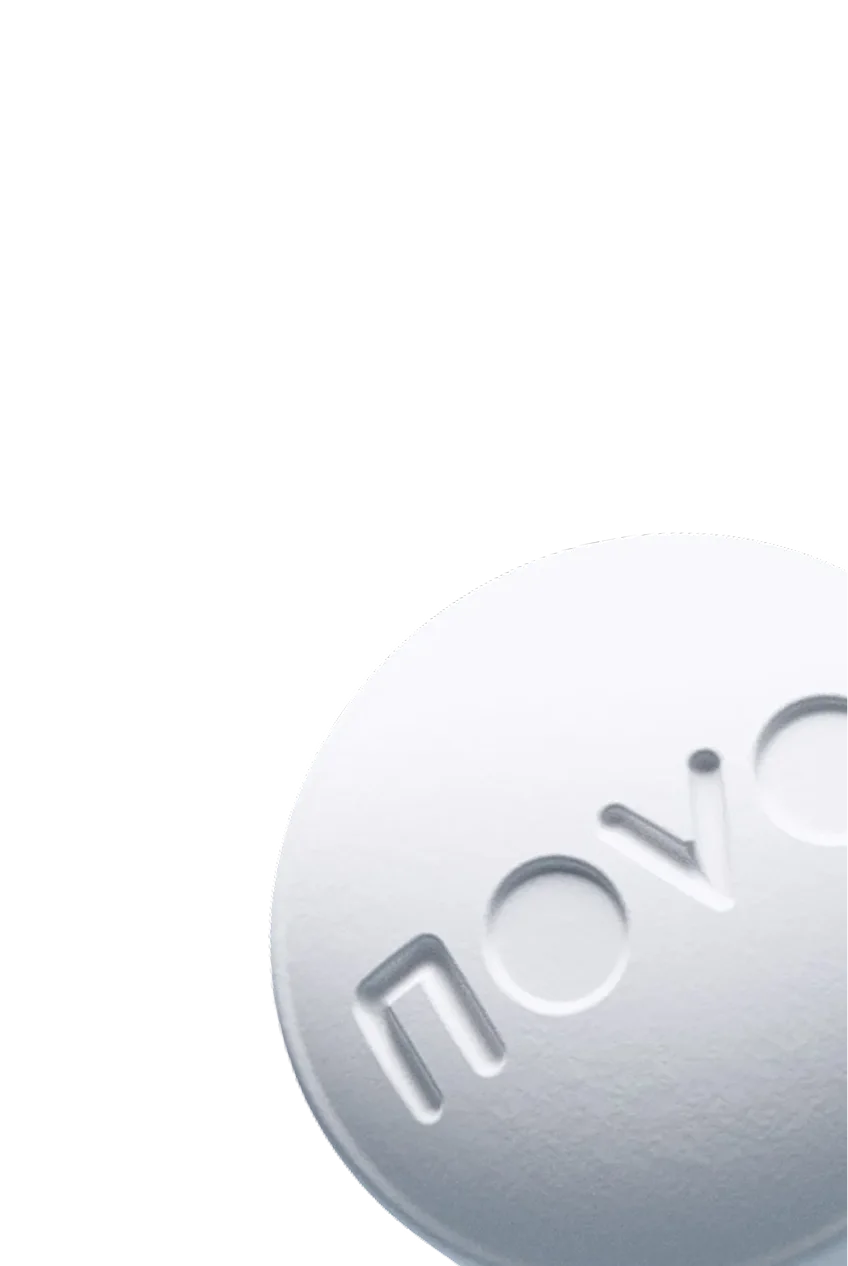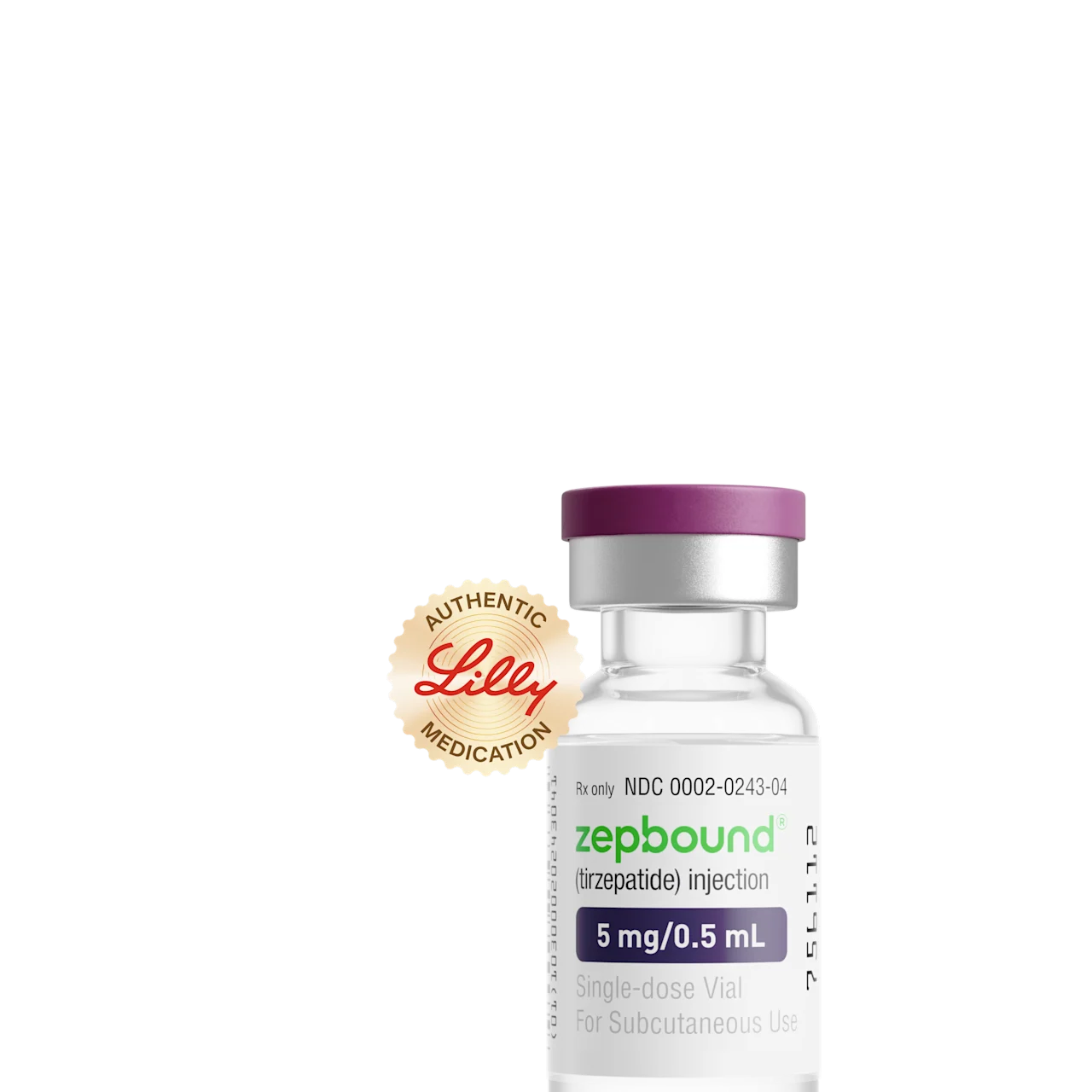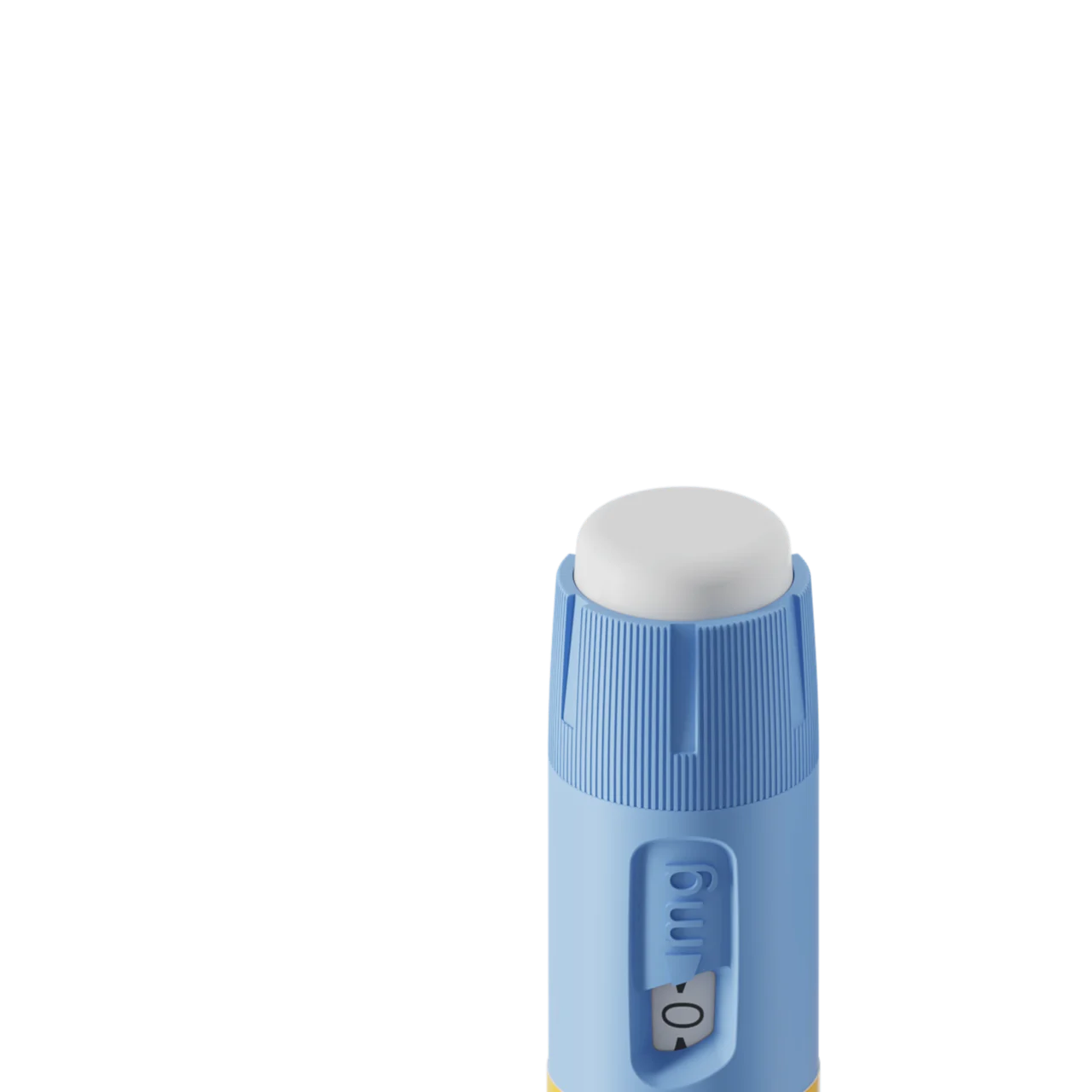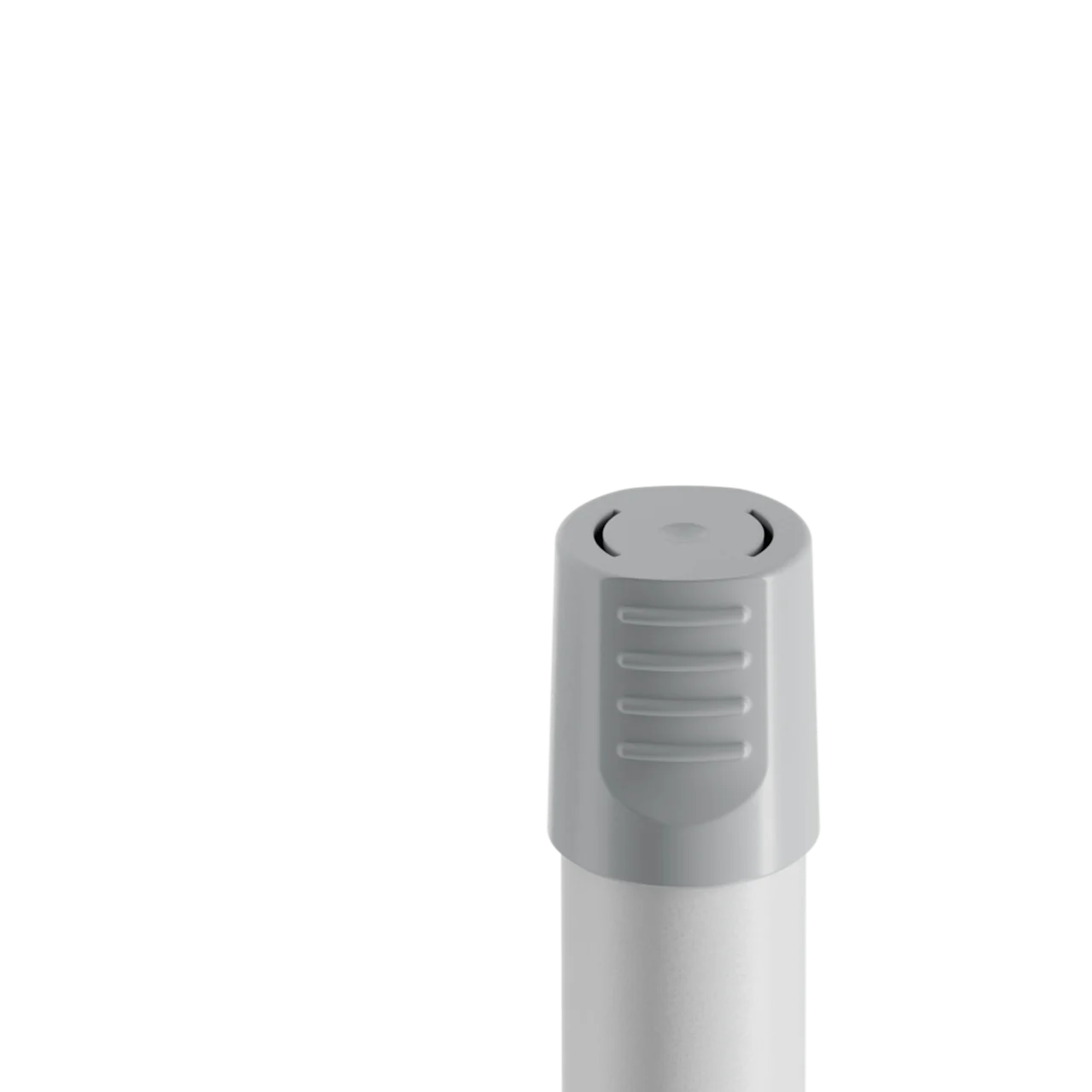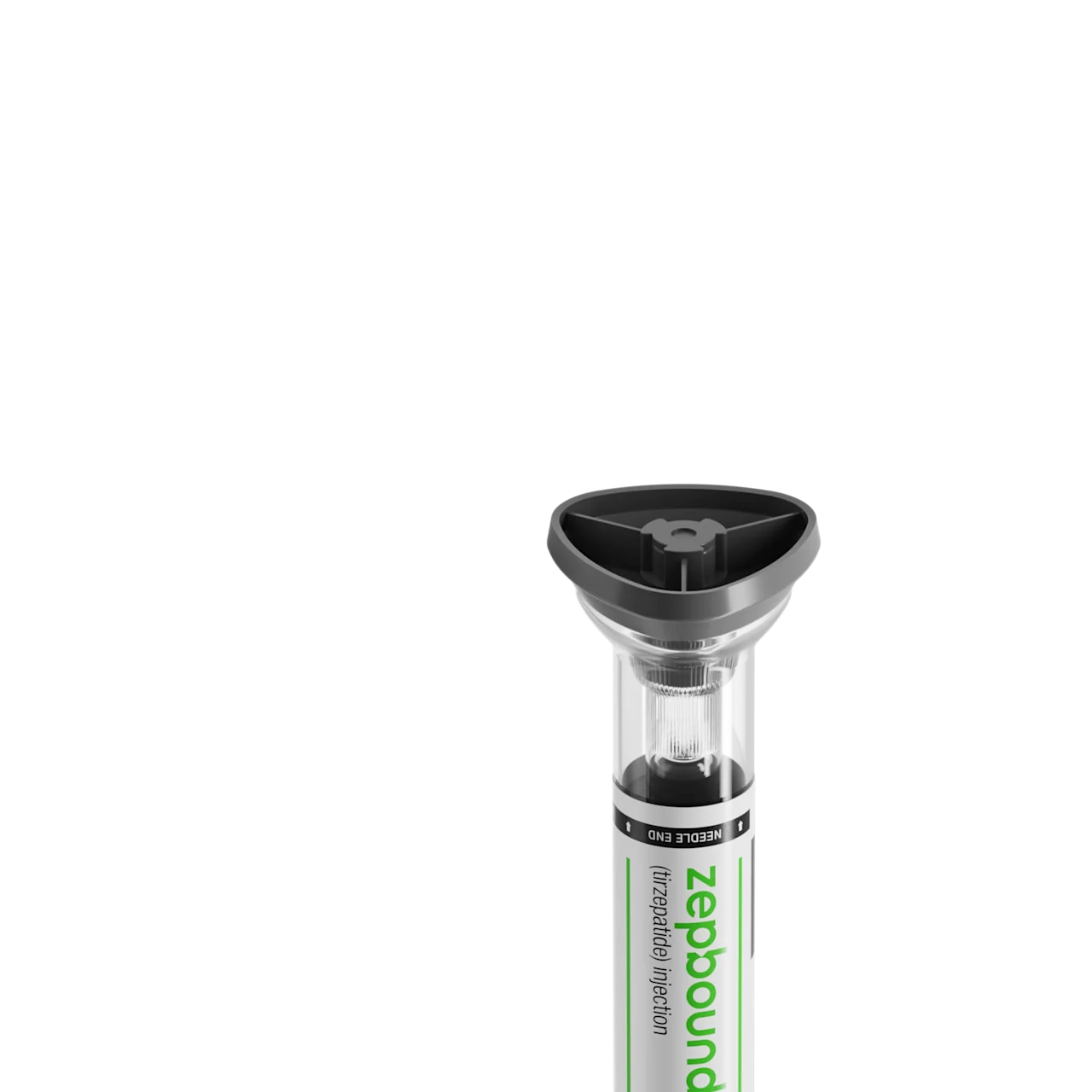Key takeaways
The best weight loss supplements for men include protein, fiber, magnesium, caffeine, green tea extract, and berberine.
There’s no magic supplement for weight loss, but some can support your goals.
Check that a weight loss supplement is third-party tested and has quality ingredients before adding one to your daily routine.
Here's what we'll cover
Key takeaways
The best weight loss supplements for men include protein, fiber, magnesium, caffeine, green tea extract, and berberine.
There’s no magic supplement for weight loss, but some can support your goals.
Check that a weight loss supplement is third-party tested and has quality ingredients before adding one to your daily routine.
Before we get started, let’s get one thing out of the way: There is no magic supplement for weight loss. At most, weight loss supplements for men (and those for women) may help you lose a handful of pounds, but they aren’t magic pills.
Still, that doesn’t mean they can’t be helpful in your weight loss journey — especially when combined with diet, exercise, and other healthy lifestyle changes.
“There are no specific supplements that will inherently result in weight loss,” says Derek Lipton, MS, RD, CSSD, CSCC, registered dietitian and owner of Full Circle Sports Nutrition. But some supplements can help create a caloric deficit that can lead to weight loss, Lipton says.
So, what are those, exactly? Read on to learn the best weight loss supplements for men, how they work, and what to consider when buying them — plus, alternatives worth keeping in mind.
What are the best weight loss supplements for men?
To find the best weight loss supplements for men, we reviewed the research. We also talked to dietitians and clinicians. Here’s a short list of the best supplements for men, recommended by research and health experts:
Magnesium
Protein
Fiber
Caffeine
Green tea extract
Berberine
Before you start taking a weight loss supplement, it’s important to know that these products aren’t regulated the same way as prescription drugs. The US Food and Drug Administration (FDA) doesn’t review or approve supplements before they’re sold. They also aren’t tested for safety or how well they work. This means brands can make claims about their ingredients that may not always be supported by scientific research.
In other words, weight loss supplements may help you lose weight, but they shouldn't be seen as a guaranteed solution. With that out of the way, let's take a look at the top six weight loss supplement ingredients.
1. Magnesium
Some research shows that magnesium can help you manage your blood sugar levels, says Shawn George, MD, an internal medicine physician at Yorktown Health. People who have stable blood sugar levels (whether or not that’s supported by healthy magnesium levels) experience better control of their appetite, and fewer cravings for unhealthy foods, he says.
And, some studies show that people with higher levels of magnesium tend to have less body fat. Since magnesium deficiency is common, especially in men, taking it as a weight loss supplement may help speed up fat loss.
Some people may be more likely to lose weight when taking magnesium supplements, including:
Women
People with low magnesium levels (magnesium deficiency)
People with obesity
People with high blood pressure
People with insulin resistance
It's also possible that magnesium may have a larger effect on your body mass index (BMI) vs. body weight.
Who should consider it: Dr. George recommends magnesium supplements for his male patients who are already low and trying to lose weight. Magnesium supplements may be particularly effective for men with:
Lower magnesium levels
High blood pressure
Insulin resistance
Tips for use: Magnesium helps your muscles and metabolism work better, Dr. George says. “Men who incorporate exercise into their weight loss strategy find that adequate magnesium levels enhance their muscle function while minimizing their fatigue levels.”
By relieving fatigue, he says men may be less likely to cramp during exercise. This may make it easier for them to push harder through their workouts, further aiding in weight loss. For example, one small study found that men who took a magnesium supplement for a week before a run experienced less soreness.
Another study found that magnesium supplements may be good for your bench press workouts, too. Taking them can reduce soreness and improve recovery.
Magnesium supplements come in a variety of forms. Our gut seems to absorb aspartate, citrate, lactate, and chloride forms better than magnesium oxide or sulfate. Depending on your age, the National Institutes of Health (NIH) recommends 400–420 mg daily for men.
2. Protein
“One of the biggest keys to weight loss is a high-protein diet,” Lipton says. “Protein aids in muscle mass and induces satiety, meaning fewer cravings and overall intake.” That makes protein powder a simple, convenient way to get more protein between meals.
Studies show that high-protein diets can drive weight loss and prevent weight regain. Translation: protein helps you shed pounds and keep them off.
Protein boosts satiety, or fullness, so you feel fuller for longer. And it requires more energy than carbs or fat to burn, so your body uses more energy simply by digesting it. Finally, protein preserves lean muscle, supporting a healthy metabolism as you lose weight.
Protein supplements may offer another benefit: greater gym gains. According to a meta-analysis of 49 studies, men who used protein supplements saw larger increases in their:
Strength
Muscle size
Fat-free mass
The effects were even larger in men who regularly engaged in resistance training.
Who should consider it: Protein can help men stick to a lower-calorie diet without losing muscle, says Arnold Breitbart, MD, head plastic surgeon at New York Liposuction Center. That’s what makes protein so essential, he says. “It supports muscle retention during calorie restriction and keeps appetite in check.”
Protein supplementation may be helpful for men who:
Experience hunger cravings between meals
Want to improve their gains at the gym
Want to increase their overall protein intake
Tips for use: Add a high-quality protein shake or meal replacement to your daily routine. Dr. Breitbart says this simple change has made it dramatically easier for patients to stick to their diets, especially during the first month of losing weight.
How much protein do you need for weight loss? According to the studies cited earlier, the gym gains leveled out once someone surpassed a daily protein intake of 1.6 grams per kg of body weight.
3. Fiber
Like protein, fiber also helps with satiety. “When we start increasing fiber intake, many patients see fewer cravings, more consistent eating patterns, and less evening snacking,” Dr. Breitbart says. “These small shifts can help make long-term weight loss more realistic.”
Among people with obesity, researchers have found that taking soluble fiber supplements led to:
An average weight loss of 5.5 pounds
A reduction in BMI
0.4% less body fat
More balanced blood sugar levels
Soluble fiber absorbs water and turns into a gel during digestion. This slows down digestion, so you feel full longer. At the same time, it improves your blood sugar levels. You can find soluble fiber in glucomannan or psyllium husk supplements. Fiber also shows up in many foods, such as oats, barley, nuts, lentils, and beans.
(Insoluble fiber, by the way, is also important for your health. Found in vegetables and whole grains, it bulks up your stool and helps it pass through your stomach and intestines.)
Who should consider it: Fiber supplements can help men who:
Struggle with cravings and snacking
Want to improve their gut microbiome and time on the toilet
Have type 2 diabetes or prediabetes
Tips for use: The recommended daily fiber intake ranges from 25–30 grams, more than the average American currently consumes. In addition to fiber supplements like glucomannan or psyllium husk, you can find fiber in many plant foods such as:
Fruits
Vegetables
Legumes
Seeds
Whole grains
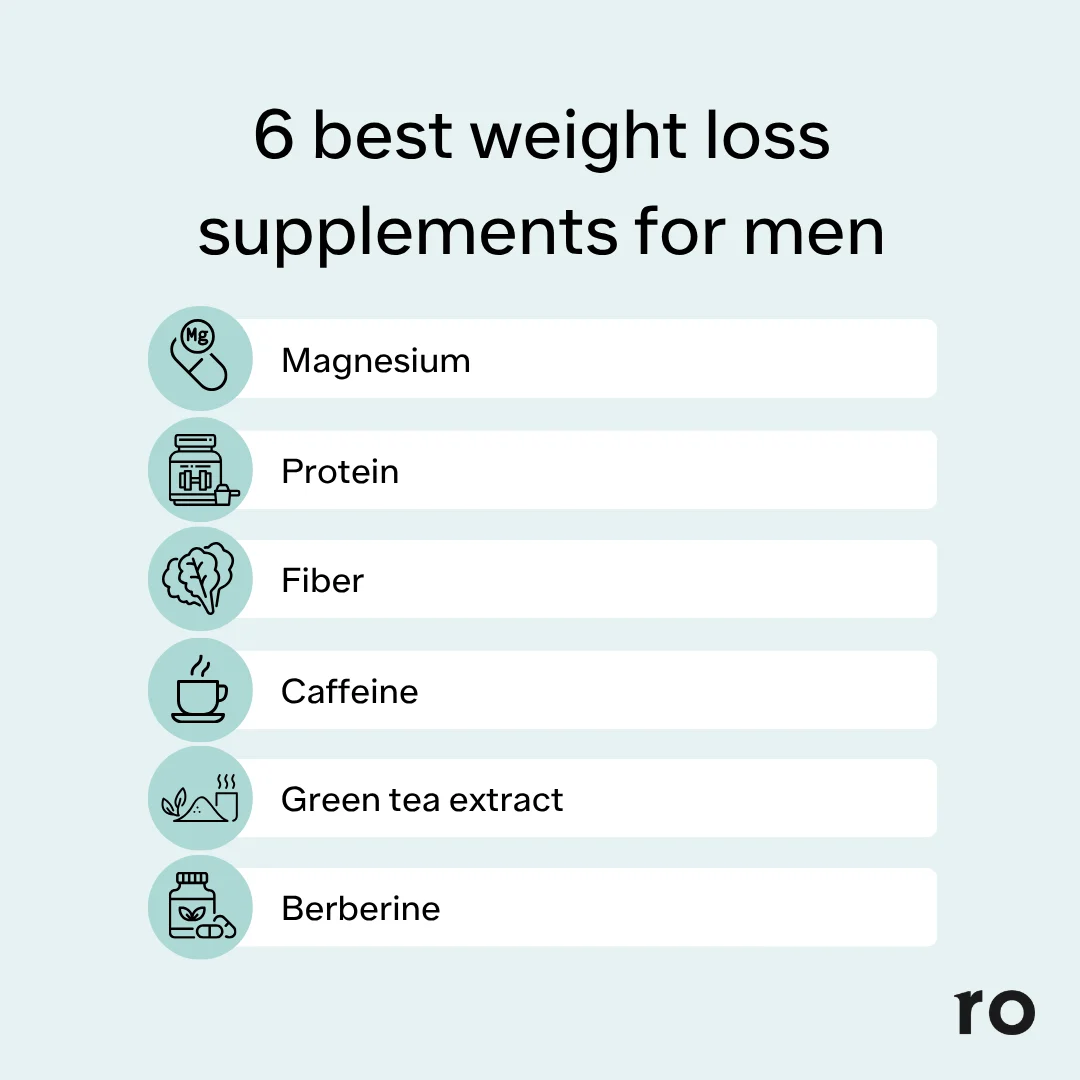
4. Caffeine
That’s right. The same caffeine that gives you a daily energy boost in the morning could also help you lose weight. Caffeine is often included in many weight loss supplements for men for two reasons:
It’s a natural appetite suppressant.
It has been shown to rev up your metabolism, especially when it comes to burning fat.
In fact, some studies have found a direct correlation between caffeine consumption and weight loss. In the studies, people who had more caffeine lost more weight and fat. Caffeine may also help with weight loss by increasing your energy levels, so you’re able to push harder during workouts.
Who should consider it: Increasing your daily caffeine intake may be helpful for men who:
Don’t have trouble sleeping
Don’t experience negative side effects from caffeine
Want to boost their energy levels and metabolism
Tips for use: You can find caffeine in tea, coffee, yerba mate, chocolate, and weight loss supplements. Pay attention to how much caffeine you consume daily, especially if you add in supplements. The safe upper limit is 400 mg per day, according to research.
5. Green tea extract
You can also find caffeine in another weight loss supplement for men: green tea extract. Green tea contains antioxidants like catechin epigallocatechin gallate (EGCG). EGCGhas been shown to increase calorie burning.
Green tea extract can offer a one-two (three?) punch for men looking to lose weight. The caffeine content suppresses appetite and gives your metabolism a boost. Meanwhile, the antioxidants can speed up calorie burning.
Studies show that green tea extract can lead to a small but significant amount of weight loss in people with obesity. Results vary, but the weight loss ranges from less than 0.5 pounds to up to nearly 8 pounds. Green tea extract also led to a small reduction in their waistlines.
Who should consider it: Weight loss supplements with green tea extract may be helpful for men who:
Want to slightly increase their metabolism
Don’t experience negative side effects from caffeine
Get cravings between meals
Tips for use: More is not necessarily always better when it comes to green tea extract and weight loss. One study found that it was most effective for weight loss in amounts below 500 mg per day.
When shopping for a green tea extract supplement, check the label to make sure it lists EGCG, the main active ingredient. Some products only mention catechins, which are natural plant compounds found in tea that act as antioxidants. Remember that green tea extract also contains some caffeine, so it’s best to avoid taking it too late in the day. For the best results, pair your supplement with regular exercise.
Research suggests combining green tea extract (around 500 mg daily) with workouts three to five times per week can have a small but meaningful effect on weight loss.
6. Berberine
If you’re looking for a natural weight loss supplement that’s similar to Ozempic, berberine is your best bet, says Bess Berger, RDN, CDN, CLT, registered dietitian nutritionist and founder of Nutrition by Bess. “It basically tells your body to use glucose and energy more efficiently and burn more fat.”
Indeed, some people are calling berberine “nature’s Ozempic” because of its effects on blood sugar and body weight. Studies show that berberine supplements can lower your:
Body weight
BMI
Total and LDL cholesterol
Triglycerides
Blood sugar levels
Blood pressure
Who should consider it: Berberine can drive all sorts of benefits beyond weight loss. It’s a good option for men who:
Have high cholesterol
Want to protect their heart health while losing weight
Manage their blood sugar levels
Tips for use: While the amount of weight loss driven by berberine is small, it can still be part of a larger approach to weight loss. Keep in mind, though, that it tends to take time to see the effects — almost a year, according to some studies.
Research shows that the most effective dose of berberine for weight loss is 1 gram per day.
What to look for in weight loss supplements for men
Over-the-counter supplements are not regulated by the FDA. That means it’s up to you to do your due diligence to ensure that any product you are considering is safe and effective. Here’s what to look for, according to the experts interviewed:
Check the label for third-party certifications.
“Every supplement should be third-party tested,” Lipton says. “Look for NSF, Informed Choice, Labdoor, or USP on the label. Otherwise, supplements can be an absolute wild card.” These organizations independently test supplements to ensure they contain quality ingredients that match what’s on the label.
Review the ingredient list and dosage.
Legitimate supplement brands follow transparent labeling practices. They don’t try to hide any ingredients. Instead, they clearly disclose the exact amounts of each ingredient, even if it makes up a “proprietary blend.” Research each ingredient, including the recommended daily dosage. Check with your healthcare provider if you have any questions.
Bring a healthy dose of skepticism.
If a supplement promises something that sounds too good to be true, it probably is. Be wary of claims that suggest that a supplement is the be-all, end-all to weight loss or fat burning.
Talk to your healthcare provider.
A healthcare professional can help you quickly suss out what’s safe and what’s not. And if you have any underlying health conditions or take other medications? Then it’s especially important to check with your healthcare provider before adding a supplement to your routine.
Weight loss supplements for men: red flags
Now that you know what to look for, what should you avoid? Here are three things to steer clear of when shopping for weight loss supplements:
Unrealistic claims. Some brands have no problem making wild claims about being able to melt fat instantly or remove it in a particular area (such as belly fat). When you see bold claims like these on the label, that’s your sign to look for another supplement.
Hidden ingredients. While supplements are required by law to list all ingredients on the label, some brands choose not to do so. And since the FDA doesn’t review these products beforehand, many of them can get away with it — until they land on the FDA’s database of Tainted Weight Loss Products, that is. That’s why it’s important to choose a brand that has been third-party certified by NSF, USP, or another trusted organization.
Excessive caffeine content. Caffeine can be a safe and natural way to boost your weight loss efforts. But taking too much of it (over 400 mg per day) can lead to serious side effects, including headache, anxiety, sleep problems, and increased heart rate.
Are weight loss supplements for men safe?
It depends on the product. Weight loss supplements don’t undergo the same FDA review process as prescription drugs do before they’re sold. Often, dangerous supplements — including ones with hidden ingredients — are only discovered after consumers or healthcare professionals report them to the FDA.
That’s why it’s so important to double-check that a supplement has been third-party tested by NSF, USP, or GMP, Dr. Breitbart says. “Then you want to make sure the ingredients have actual human data behind them,” he says, like protein or fiber.
The best way to know if a weight loss supplement is safe is to chat with your healthcare provider first. They can make sure it won’t interact with other medications you’re taking and can support your health goals.
Are weight loss supplements for men effective?
Yes, weight loss supplements can be effective. But you shouldn’t rely on them to make a big difference in your weight loss efforts. In general, their results are small, contributing to an average weight loss of a handful of pounds, at most.
Other studies suggest they may have no effect. Or, that their effect is less than what you can gain from diet and exercise.
The most effective weight loss supplements have research backing them up. These include protein, fiber, magnesium, caffeine, green tea extract, and berberine.
Alternatives to weight loss supplements for men
Supplements can support weight loss, but they work best when used as part of a holistic approach. Ideally, that approach includes diet, exercise, and other healthy lifestyle changes. Below, we share some proven alternatives that can be effective, whether or not you choose to combine them with weight loss supplements:
Consider weight loss medications. While supplements can only go so far, weight loss medication can seriously power up your weight loss efforts. Through Ro, you can meet with a provider to talk through your weight loss goals and determine if a GLP-1 medication like Wegovy or Zepbound could be a fit for you.
Eat a balanced diet. Eating fewer calories than you burn (aka a calorie deficit) is the best way to lose weight. Since you’re eating less, make sure the food you do eat is free of added sugar, unhealthy fats, and empty calories. Instead, fill up on whole foods. Go for fruits, vegetables, whole grains, and lean proteins (e.g. fish, chicken, tofu).
Exercise regularly. Exercise is key to burning calories. Mixing aerobic workouts with strength training tends to be the best combo for weight loss.
Get more sleep. You need plenty of sleep to keep your appetite hormones steady. Aim for 7–9 hours of sleep per night.
Manage your stress. Stress is linked with obesity. Stressed-out people eat more unhealthy foods, and fewer healthy foods, causing weight gain. Practice stress reduction techniques like meditation, deep breathing exercises, and progressive muscle relaxation.
Rx weight loss with Ro
Get access to prescription weight loss medication online
Bottom line
If you're trying to lose weight, you’ve probably considered weight loss supplements. The truth is, no supplement will lead to dramatic weight loss on its own. But, some can help support your efforts — especially when combined with diet, exercise, and other healthy habits.
Supplements aren’t magic pills. At best, they can help you shed a few extra pounds or support a healthy metabolism. They won’t replace a balanced diet or regular exercise.
Research-backed ingredients are your best bet. Protein, fiber, magnesium, caffeine, green tea extract, and berberine have the most evidence supporting their effectiveness.
Third-party testing matters. Look for certifications like NSF or USP. This way, you know it’s been tested, actually contains what’s on the label, and is free from harmful additives.
More is not always better. Taking excessive doses of any supplement, especially caffeine, can lead to unpleasant or dangerous side effects.
Talk to a healthcare provider before you start. This is especially important if you have underlying health conditions or take medication. Your provider can help you figure out what’s safe and can help you meet your goals.
DISCLAIMER
If you have any medical questions or concerns, please talk to your healthcare provider. The articles on Health Guide are underpinned by peer-reviewed research and information drawn from medical societies and governmental agencies. However, they are not a substitute for professional medical advice, diagnosis, or treatment.
GLP-1 Important Safety Information: Read more about serious warnings and safety info.
Wegovy Important Safety Information: Read more about serious warnings and safety info.
Zepbound Important Safety Information: Read more about serious warnings and safety info.
References
Askari, M., Mozaffari, H., Jafari, A., et al. (2020). The effects of magnesium supplementation on obesity measures in adults: a systematic review and dose-response meta-analysis of randomized controlled trials. Critical Reviews in Food Science and Nutrition, 61(17), 2921–2937. doi: 10.1080/10408398.2020.1790498. Retrieved from https://pubmed.ncbi.nlm.nih.gov/32654500/
Bessell, E., Maunder, A., Lauche, R., et al. (2021). Efficacy of dietary supplements containing isolated organic compounds for weight loss: a systematic review and meta-analysis of randomised placebo-controlled trials. International Journal of Obesity, 45(8), 1631–1643. doi: 10.1038/s41366-021-00839-w. Retrieved from https://www.nature.com/articles/s41366-021-00839-w
Clark, J. E. & Welch, S. (2021). Comparing effectiveness of fat burners and thermogenic supplements to diet and exercise for weight loss and cardiometabolic health: Systematic review and meta-analysis. Nutrition and Health, 27(4), 445–459. doi: 10.1177/0260106020982362. Retrieved from https://journals.sagepub.com/doi/abs/10.1177/0260106020982362
Dini, I. & Mancusi, A. (2023). Weight loss supplements. Molecules, 28(14), 5357. doi: 10.3390/molecules28145357. Retrieved from https://www.mdpi.com/1420-3049/28/14/5357#B56-molecules-28-05357
Gholami, F., Antonio, J., Iranpour, M., et al. (2024). Does green tea catechin enhance weight-loss effect of exercise training in overweight and obese individuals: a systematic review and meta-analysis of randomized trials. Journal of the International Society of Sports Nutrition, 21(1), 2411029. doi: 10.1080/15502783.2024.2411029. Retrieved from https://pmc.ncbi.nlm.nih.gov/articles/PMC11445908/
Guest, N. S., VanDusseldorp, T. A., Nelson, M. T., et al. (2021). International society of sports nutrition position stand: caffeine and exercise performance. Journal of the International Society of Sports Nutrition, 18(1), 1. doi: 10.1186/s12970-020-00383-4. Retrieved from https://pmc.ncbi.nlm.nih.gov/articles/PMC7777221/
Hill, D., Conner, M., Clancy, F., et al. (2021). Stress and eating behaviours in healthy adults: a systematic review and meta-analysis. Health Psychology Review, 16(2), 280–304. doi: 10.1080/17437199.2021.1923406. Retrieved from https://www.tandfonline.com/doi/full/10.1080/17437199.2021.1923406
Lin, Y., Shi, D., Su, B., et al. (2020). The effect of green tea supplementation on obesity: A systematic review and dose–response meta‐analysis of randomized controlled trials. Phytotherapy Research, 34(10), 2459–2470. doi: 10.1002/ptr.6697. Retrieved from https://onlinelibrary.wiley.com/doi/abs/10.1002/ptr.6697
McKeown, N. M., Fahey, G. C., Jr, Slavin, J., et al. (2022). Fibre intake for optimal health: how can healthcare professionals support people to reach dietary recommendations?. BMJ (Clinical research ed.), 378, e054370. doi: 10.1136/bmj-2020-054370. Retrieved from https://pmc.ncbi.nlm.nih.gov/articles/PMC9298262/
MedlinePlus. (2024). Soluble vs. insoluble fiber. Retrieved from https://medlineplus.gov/ency/article/002136.htm
Moon, J. & Koh, G. (2020). Clinical evidence and Mechanisms of High-Protein Diet-Induced Weight Loss. Journal of Obesity & Metabolic Syndrome, 29(3), 166–173. doi: 10.7570/jomes20028. Retrieved from https://pmc.ncbi.nlm.nih.gov/articles/PMC7539343/
Morton, R. W., Murphy, K. T., McKellar, S. R., et al. (2017). A systematic review, meta-analysis and meta-regression of the effect of protein supplementation on resistance training-induced gains in muscle mass and strength in healthy adults. British Journal of Sports Medicine, 52(6), 376–384. doi: 10.1136/bjsports-2017-097608. Retrieved from https://bjsm.bmj.com/content/52/6/376.long
Office of Dietary Supplements (ODS). (2022). Fact Sheet for Health Professionals: Magnesium. National Institutes of Health. Retrieved from https://ods.od.nih.gov/factsheets/Magnesium-HealthProfessional/
Reno, A. M., Green, M., Killen, L. G., et al. (2022). Effects of Magnesium Supplementation on Muscle Soreness and Performance. Journal of Strength and Conditioning Research, 36(8), 2198–2203. doi: 10.1519/JSC.0000000000003827. Retrieved from https://pubmed.ncbi.nlm.nih.gov/33009349/
Shammaa, A. A., Al-Thani, A., Al-Kaabi, M., et al. (2023). Serum Magnesium is Inversely Associated with Body Composition and Metabolic Syndrome. Diabetes Metabolic Syndrome and Obesity, 16, 95–104. doi: 10.2147/dmso.s391369. Retrieved from https://www.tandfonline.com/doi/pdf/10.2147/DMSO.S391369
Steward, C. J., Zhou, Y., Keane, G., et al. (2019). One week of magnesium supplementation lowers IL-6, muscle soreness and increases post-exercise blood glucose in response to downhill running. European Journal of Applied Physiology, 119(11-12), 2617–2627. doi: 10.1007/s00421-019-04238-y. Retrieved from https://pubmed.ncbi.nlm.nih.gov/31624951/
Tabrizi, R., Saneei, P., Lankarani, K. B., et al. (2018). The effects of caffeine intake on weight loss: a systematic review and dose-response meta-analysis of randomized controlled trials. Critical Reviews in Food Science and Nutrition, 59(16), 2688–2696. doi: 10.1080/10408398.2018.1507996. Retrieved from https://www.researchgate.net/publication/328378300_The_effects_of_caffeine_intake_on_weight_loss_a_systematic_review_and_dos-response_meta-analysis_of_randomized_controlled_trials
Thompson, S. V., Hannon, B. A., An, R., & Holscher, H. D. (2017). Effects of isolated soluble fiber supplementation on body weight, glycemia, and insulinemia in adults with overweight and obesity: a systematic review and meta-analysis of randomized controlled trials. American Journal of Clinical Nutrition, 106(6), 1514–1528. doi: 10.3945/ajcn.117.163246. Retrieved from https://www.sciencedirect.com/science/article/pii/S0002916522027022
U.S. Food And Drug Administration (FDA-a). (2024). Questions and Answers on Dietary Supplements. Retrieved from https://www.fda.gov/food/information-consumers-using-dietary-supplements/questions-and-answers-dietary-supplements
U.S. Food And Drug Administration (FDA-b). (2024). Tainted Weight Loss Products. Retrieved from https://www.fda.gov/drugs/medication-health-fraud/tainted-weight-loss-products
Van Egmond, L. T., Meth, E. M. S., Engström, J., et al. (2022). Effects of acute sleep loss on leptin, ghrelin, and adiponectin in adults with healthy weight and obesity: A laboratory study. Obesity, 31(3), 635–641. doi: 10.1002/oby.23616. Retrieved from https://onlinelibrary.wiley.com/doi/10.1002/oby.23616
Waters, D. L., Aguirre, L., Gurney, B., et al. (2022). Effect of Aerobic or Resistance Exercise, or Both, on Intermuscular and Visceral Fat and Physical and Metabolic Function in Older Adults With Obesity While Dieting. The Journals of Gerontology. Series A, Biological Sciences and Medical Sciences, 77(1), 131–139. doi: 10.1093/gerona/glab111. Retrieved from https://pubmed.ncbi.nlm.nih.gov/33839788/
Wikoff, D., Welsh, B. T., Henderson, R., et al. (2017). Systematic review of the potential adverse effects of caffeine consumption in healthy adults, pregnant women, adolescents, and children. Food and Chemical Toxicology: An International Journal Published for the British Industrial Biological Research Association, 109(Pt 1), 585–648. doi: 10.1016/j.fct.2017.04.002. https://www.sciencedirect.com/science/article/pii/S0278691517301709?via%3Dihub
Zamani, M., Zarei, M., Nikbaf-Shandiz, M., et al. (2022). The effects of berberine supplementation on cardiovascular risk factors in adults: A systematic review and dose-response meta-analysis. Frontiers in Nutrition, 9. doi: 10.3389/fnut.2022.1013055. Retrieved from https://pubmed.ncbi.nlm.nih.gov/36313096/
Zhang, H. & Speakman, J. R. (2024). The complexity of coffee and its impact on metabolism. The Journal of Endocrinology, 262(3), e240075. doi:10.1530/JOE-24-0075. Retrieved from https://pubmed.ncbi.nlm.nih.gov/38885075/




